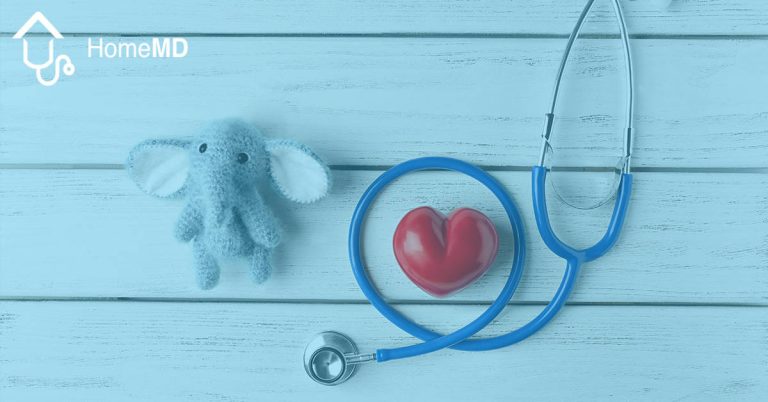Brain Health and Aging: Daily Activities to Keep Your Mind Sharp
Brain Health and Aging: Daily Activities to Keep Your Mind Sharp
Introduction
Aging brings wisdom and experience, but it can also introduce concerns about cognitive health. Many Toronto seniors and their families wonder about maintaining mental sharpness as the years advance. The good news is that brain health isn’t solely determined by genetics or luck—daily habits and activities can significantly influence cognitive wellness even into advanced age.
At Care& Family Health, we regularly hear from patients concerned about maintaining their cognitive functions as they age. This is a valid concern, as research shows that proactive brain health strategies can make a meaningful difference in how we experience our later years.
The human brain possesses remarkable plasticity—the ability to adapt, rewire, and even grow new neural connections throughout life. This means that regardless of your age, there are practical, science-backed activities you can incorporate into your daily routine to support brain health and potentially reduce the risk of cognitive decline.
This article explores simple yet effective daily practices that can help keep your mind sharp as you age. From physical movement to social engagement, these activities are accessible to most seniors and can be easily incorporated into everyday life, turning ordinary moments into opportunities for brain health.
Understanding Brain Health in Aging
What Happens to Our Brains as We Age
The aging brain undergoes several natural changes. Starting around age 40, the brain begins to shrink slightly, with the rate of shrinkage increasing after age 70. This involves some loss of neurons and connections between them. Blood flow to the brain may decrease, and the production of certain neurotransmitters—chemicals that carry messages between brain cells—may slow down.
While these changes are normal, they can affect cognitive functions in various ways:
- Processing speed may slow down
- Multitasking might become more challenging
- Recall of certain types of information may take longer
- Learning new information might require more repetition
However, it’s crucial to understand that significant cognitive decline is not an inevitable part of aging. The brain maintains its ability to adapt and form new connections throughout life, and many cognitive abilities—like wisdom, knowledge, and emotional regulation—actually improve with age.
Differentiating Normal Changes from Concerning Signs
Many Torontonians who visit medical clinics with memory concerns are experiencing normal age-related changes rather than pathological decline. Understanding this difference can help reduce anxiety and focus on productive brain health strategies.
Normal age-related changes include:
- Occasionally forgetting names but remembering them later
- Sometimes misplacing items like keys or glasses
- Occasional difficulty finding the right word
- Minor changes in ability to pay attention in busy environments
More concerning signs that warrant discussion with a healthcare provider include:
- Getting lost in familiar places
- Difficulty following or joining conversations
- Consistent problems managing finances or medications
- Personality changes or mood disturbances
- Forgetting important events or appointments repeatedly
At Care&, Nurse Practitioners frequently help patients distinguish between normal aging and signs that require further evaluation, providing peace of mind and appropriate care pathways when needed.
The Science of Neuroplasticity and Cognitive Reserve
Two concepts offer hope for maintaining brain health: neuroplasticity and cognitive reserve.
Neuroplasticity refers to the brain’s remarkable ability to reorganize itself by forming new neural connections throughout life. This means the brain can adapt to new situations, recover from injury, and respond to changes in environment.
Cognitive reserve is the brain’s ability to improvise and find alternate ways of getting a job done. People with higher cognitive reserve can better cope with brain changes or damage because their brains effectively find workarounds to continue functioning.
Research shows that lifestyle factors can significantly influence both neuroplasticity and cognitive reserve. A 2020 study published in JAMA Network Open found that a combination of physical activity, cognitive stimulation, and social engagement was associated with better cognitive function, even in people with genetic risk factors for dementia.
Physical Activities for Brain Health
The Brain-Body Connection
The connection between physical health and brain function is stronger than many realize. Regular physical activity increases blood flow to the entire body, including the brain, delivering vital oxygen and nutrients. Exercise also stimulates the production of growth factors—chemicals that affect brain cell health and the growth of new blood vessels in the brain.
Research published in the British Journal of Sports Medicine found that even moderate exercise can increase the size of the hippocampus, the brain area involved in verbal memory and learning. For Torontonians facing our long winters, finding consistent, year-round physical activities becomes especially important for maintaining brain health.
Daily Movement Practices for Seniors
You don’t need intense workouts to reap brain benefits. Here are accessible movement practices most seniors can incorporate into daily routines:
- Walking: A simple 30-minute walk around Lawrence Park or Yorkville can improve circulation, reduce stress, and enhance creative thinking. Even in winter, Toronto’s indoor walking tracks and mall walking programs provide safe alternatives.
- Tai Chi and Gentle Yoga: These practices combine movement with mindfulness, offering dual benefits for brain health. They improve balance (reducing fall risk) while encouraging mind-body connection. Many community centers across Toronto offer senior-friendly classes.
- Dancing: Whether it’s a formal dance class or simply moving to favorite music at home, dancing combines physical movement with the mental challenge of remembering steps and sequences.
- Gardening: This moderate-intensity activity incorporates stretching, strength, and sensory stimulation. Container gardening on balconies or participating in community gardens offers Toronto seniors access to this brain-healthy activity even with limited space.
- Household Activities with Purpose: Everyday tasks like folding laundry, cooking, or light cleaning can be mindfully approached as opportunities for movement.
Creating a Brain-Healthy Exercise Routine
Consistency matters more than intensity when it comes to brain health benefits. Aim for:
- At least 150 minutes of moderate physical activity weekly (about 30 minutes, five days a week)
- Activities that you genuinely enjoy, making sustainability more likely
- A mix of aerobic, balance, and strength exercises for comprehensive benefits
- Social components when possible (walking with friends, group classes) to multiply benefits
For seniors with mobility challenges or health concerns, a healthcare provider can help develop appropriate modifications. Nurse Practitioners at Care& frequently work with patients to create personalized movement plans that account for individual health conditions while maximizing brain health benefits.
Cognitive Stimulation Activities
Why Mental Exercise Matters
Just as physical muscles need regular workouts to maintain strength, the neural pathways in our brains benefit from regular challenges. Mental stimulation creates new connections between nerve cells and may even help the brain generate new cells.
Research from the Rush Memory and Aging Project, which followed over 1,200 elderly individuals for up to 21 years, found that those who spent more time in mentally stimulating activities had about a 15% slower rate of cognitive decline than those with less cognitive activity.
Daily Brain Challenges for Different Cognitive Skills
Different activities exercise different parts of the brain. A well-rounded cognitive routine includes challenges for various mental skills:
For Memory:
- Learn new recipes and experiment with unfamiliar ingredients
- Practice recalling details from articles, books, or conversations
- Use spaced repetition to learn new information (review at gradually increasing intervals)
- Create and practice memory palaces (a visualization technique for remembering information)
For Problem-Solving:
- Complete jigsaw puzzles of varying difficulties
- Play strategy games like chess or Connect Four
- Learn to use new technology (like setting up smart home devices)
- Take alternate routes when walking or driving familiar paths
For Processing Speed:
- Practice timed word games or number puzzles
- Learn to play a musical instrument
- Try speed-based card games like Speed or Spit
- Practice quick mental math in everyday situations (calculating tips, adding grocery items)
For Language Skills:
- Do crossword puzzles or word searches
- Join a book club for structured discussion
- Learn a new language through apps, classes, or conversation groups
- Practice storytelling or writing personal memoirs
For Visuospatial Skills:
- Draw or paint from observation
- Practice origami or other paper crafts
- Learn knitting, crochet, or needlework
- Use building blocks or construction sets with grandchildren
Integrating Learning into Everyday Life
Formal brain games aren’t the only way to stimulate cognition. Learning opportunities exist throughout daily life:
- Curiosity cultivation: Follow up on questions that arise during conversations or media consumption by researching answers
- Skill expansion: Tackle home repairs using tutorial videos instead of immediately calling for help
- Perspective shifts: Read news from varied sources to understand different viewpoints
- Creative challenges: Modify recipes based on available ingredients rather than strictly following instructions
- Sensory engagement: Close your eyes while tasting food to enhance flavor recognition
The key is finding a balance between comfortable activities and those that push your boundaries. The sweet spot for brain health is activities challenging enough to require focus but not so difficult they lead to frustration.
Digital Learning Resources for Seniors
Technology offers unprecedented access to learning opportunities. Senior-friendly options include:
- Online courses: Platforms like Coursera and Khan Academy offer free classes on countless subjects
- Brain training apps: While their long-term benefits are debated, apps like Lumosity, BrainHQ, and Peak offer engaging cognitive exercises
- Virtual museum tours: Major institutions worldwide offer online exhibits that can be explored from home
- Podcasts: Audio learning on specific interests, from history to gardening to science
- Video tutorials: YouTube offers instruction on practically any skill imaginable
For seniors unfamiliar with technology, healthcare providers can sometimes connect patients with digital literacy resources. At Care& Family Health, we often guide patients toward age-appropriate digital tools that support both learning and social connection.
Social Engagement Activities
The Cognitive Benefits of Social Connection
Research consistently shows that social engagement is one of the most powerful protectors of brain health. A study published in the Journal of the International Neuropsychological Society found that higher levels of social engagement were associated with better cognitive function in later life.
Social interaction provides multiple cognitive benefits:
- Complex conversations exercise language processing
- Adapting to different personalities requires cognitive flexibility
- Maintaining relationships exercises emotional intelligence
- Group activities often involve memory, planning, and problem-solving
The inverse is also true—loneliness and social isolation are associated with accelerated cognitive decline and increased dementia risk. This underscores the importance of maintaining social connections as we age.
Creating Meaningful Social Opportunities
Quality of social interaction often matters more than quantity. Here are practical ways Toronto seniors can cultivate meaningful social connections:
- Intergenerational connections: Spending time with younger family members or volunteering with youth programs challenges seniors to adapt to different communication styles and perspectives.
- Purpose-driven volunteering: Organizations across Toronto need senior volunteers. Contributing specialized knowledge or life experience provides both social connection and the cognitive benefits of purposeful work.
- Interest-based groups: From book clubs to gardening societies to historical associations, shared-interest groups facilitate natural connections while stimulating the mind.
- Cultural engagement: Toronto’s rich cultural landscape offers numerous opportunities for social engagement through museums, theaters, concerts, and cultural celebrations that stimulate conversation and shared experiences.
- Faith communities: For many seniors, religious congregations provide both spiritual fulfillment and a built-in social network spanning multiple generations.
Overcoming Barriers to Social Connection
Various obstacles can limit social interaction for seniors, including:
Transportation challenges: Options include:
- Toronto’s Wheel-Trans accessible transit service
- Ride-sharing arrangements with neighbors
- Virtual participation options for many activities
Health limitations: Adaptations include:
- Selecting venues with accessibility features
- Joining groups specifically designed for those with similar health conditions
- Hosting small gatherings at home instead of traveling to events
Technology barriers: Support available through:
- Tech tutoring programs at Toronto Public Library branches
- Family members providing basic instruction
- Senior-specific technology classes at community centers
Language or cultural differences: Resources include:
- Cultural community centers throughout Toronto
- Translation services for important events
- Multicultural seniors’ groups
At Care& Family Health, we recognize social connection as a health priority, not a luxury. Nurse Practitioners can sometimes help identify community resources matched to patients’ specific interests and needs, creating pathways to meaningful engagement.
Nutrition and Brain Health
Brain-Boosting Foods
What we eat significantly impacts brain health. The brain requires adequate nutrients to maintain optimal function, repair cellular damage, and create new neural connections.
Research increasingly supports Mediterranean and MIND (Mediterranean-DASH Intervention for Neurodegenerative Delay) diets for brain health. These eating patterns emphasize:
- Leafy greens: Spinach, kale, and other greens contain folate, vitamin E, carotenoids, and flavonoids that protect brain cells
- Berries: Especially blueberries, strawberries, and blackberries, which contain anthocyanins that may help improve memory
- Fish: Particularly fatty fish like salmon, trout, and sardines, which are rich in omega-3 fatty acids that support brain structure
- Nuts and seeds: Especially walnuts, which contain anti-inflammatory nutrients and antioxidants
- Whole grains: These provide steady glucose for brain function without the spikes associated with refined carbohydrates
- Olive oil: Contains monounsaturated fats and powerful antioxidants
- Legumes: Provide steady energy and contain nutrients that support overall brain health
Meal Planning for Cognitive Health
Implementing brain-healthy eating doesn’t require complex culinary skills. Practical approaches include:
- Simple meal frameworks: Keep a formula like “protein + vegetable + whole grain + healthy fat” for easy meal assembly
- Batch cooking: Prepare brain-healthy components like roasted vegetables, cooked whole grains, or bean dishes that can be mixed and matched throughout the week
- Strategic convenience foods: Stock freezers with frozen berries, pre-cut vegetables, or healthy prepared meals for times when cooking feels challenging
- Communal eating: Share meal preparation with friends or family to reduce the workload while adding social benefits
- Adaptive cooking tools: For those with arthritis or other physical limitations, specialized kitchen tools can make preparation of fresh foods more manageable
Hydration and Brain Function
Water is essential for optimal brain function. Even mild dehydration can impair cognitive performance, affecting concentration, alertness, and short-term memory.
Many seniors experience diminished thirst sensation, making conscious hydration particularly important. Strategies include:
- Keeping water visible and accessible throughout the day
- Using a marked water bottle to track intake
- Setting regular reminders to drink
- Consuming hydrating foods like cucumber, oranges, and soups
- Limiting dehydrating beverages like those containing alcohol or caffeine
For Toronto seniors who might struggle with planning brain-healthy meals, a Nurse Practitioner can provide personalized nutrition counseling that accounts for medical conditions, medication effects on appetite, and practical preparation challenges.
Sleep Hygiene for Brain Health
How Sleep Affects Cognitive Function
Sleep is far from a passive state for the brain. During sleep, the brain performs essential maintenance, including:
- Consolidating memories from short-term to long-term storage
- Clearing out metabolic waste, including proteins associated with Alzheimer’s disease
- Reorganizing neural pathways based on the day’s experiences
- Restoring depleted energy reserves in brain cells
Research consistently shows that inadequate sleep—whether insufficient quantity or poor quality—negatively impacts cognitive function. A 2021 study in Nature Communications found that sleep disruption in older adults was associated with increased markers of brain inflammation and accelerated cognitive decline.
Creating Sleep-Promoting Habits and Environments
Many seniors experience changes in sleep patterns with age, including earlier bedtimes, earlier wakening, and lighter sleep overall. These changes are normal, but struggling to fall asleep, stay asleep, or feeling unrested despite adequate time in bed warrants attention.
Evidence-based sleep hygiene practices include:
Daytime habits:
- Maintaining regular physical activity (but not within 3 hours of bedtime)
- Getting natural light exposure, ideally in the morning
- Limiting caffeine after noon
- Restricting naps to 30 minutes or less before 3 PM
Evening routine:
- Establishing consistent sleep and wake times
- Creating a calming pre-sleep ritual (reading, gentle stretching, warm bath)
- Limiting exposure to screens and blue light for 1-2 hours before bed
- Avoiding heavy meals within 2-3 hours of bedtime
Sleep environment optimization:
- Keeping the bedroom cool (around 65-68°F/18-20°C)
- Minimizing noise with earplugs or white noise if necessary
- Ensuring adequate darkness with blackout curtains or an eye mask
- Using comfortable, supportive mattresses and pillows
- Removing clocks from view to prevent clock-watching
Addressing Common Sleep Disruptors in Seniors
Several issues commonly affect sleep in older adults:
Nocturia (nighttime urination): Management approaches include:
- Limiting fluid intake in the evening
- Keeping a clear, well-lit path to the bathroom
- Discussing timing of diuretic medications with healthcare providers
Pain: Strategies include:
- Taking physician-approved pain medication at optimal times for overnight relief
- Using proper pillows and supportive bedding
- Trying relaxation techniques specifically for pain management
Sleep apnea: This serious condition causes breathing interruptions during sleep and is more common in older adults. Signs include:
- Loud snoring
- Observed breathing pauses during sleep
- Excessive daytime sleepiness despite adequate time in bed
- Morning headaches
Sleep apnea requires medical evaluation and treatment. At Care& Family Health, our Nurse Practitioners can analyze sleep symptoms, recommend appropriate testing when indicated, and help implement treatments that improve both sleep quality and brain health.
Stress Management and Mindfulness
The Impact of Chronic Stress on the Aging Brain
While acute stress can sometimes enhance cognitive performance, chronic stress is detrimental to brain health, particularly in older adults. Persistent stress triggers the release of cortisol, which can damage the hippocampus—a brain region crucial for memory formation.
Research from the University of California found that chronic stress can actually accelerate cellular aging and increase vulnerability to cognitive decline. Additionally, stress often disrupts sleep, reduces physical activity, and leads to poor nutritional choices—creating a cascade of negative effects on brain health.
Daily Mindfulness Practices for Seniors
Mindfulness—the practice of paying attention to the present moment without judgment—has been shown to reduce stress hormones and improve cognitive function. Simple mindfulness practices accessible to most seniors include:
- Mindful breathing: Taking 5-10 minutes to focus solely on the sensation of breathing can activate the parasympathetic nervous system and reduce stress
- Body scan meditation: Systematically bringing attention to different parts of the body, noticing sensations without trying to change them
- Mindful walking: Focusing on the sensations of walking, perhaps in Toronto’s beautiful ravine system or waterfront trails
- Sensory awareness practice: Taking time each day to fully engage one or more senses (really tasting a meal, listening intently to music, or feeling the texture of different objects)
- Gratitude practice: Regularly identifying and appreciating positive aspects of life, which has been shown to shift attention from stressors to resources
These practices require no special equipment, can be done in small time increments, and can be practiced seated or lying down if mobility is limited.
Integrating Relaxation into Daily Routines
Rather than viewing stress management as another task to complete, consider how to embed moments of calm throughout the day:
- Transition rituals: Taking three deep breaths before answering the phone, entering a room, or beginning a meal
- Nature connection: Tending houseplants, observing birds at a feeder, or simply looking at the sky for a few moments
- Creative expression: Engaging in activities like knitting, coloring, or playing music that create “flow” states
- Laughter practice: Intentionally incorporating humor through comedy shows, funny books, or time with playful friends and family
- Pet interaction: For seniors with pets, taking time to be fully present while petting or playing with animals
For those experiencing significant stress or anxiety, professional support may be beneficial. Nurse Practitioners at Care& can provide both non-pharmaceutical approaches to stress management and, when appropriate, medication options to support mental wellness and protect brain health.
Creating a Personalized Brain Health Routine
Combining Strategies for Maximum Benefit
Research suggests that the most significant brain health benefits come from combining multiple approaches rather than focusing on just one. The FINGER study (Finnish Geriatric Intervention Study to Prevent Cognitive Impairment and Disability), a landmark research project, found that a multi-domain approach incorporating diet, exercise, cognitive training, and vascular risk management produced significantly better cognitive outcomes than any single intervention.
A well-rounded brain health routine might include:
- Daily physical movement (30+ minutes)
- Cognitively stimulating activities (15-60 minutes)
- Social interaction (in-person when possible)
- Stress management practices (10-20 minutes)
- Brain-healthy eating patterns
- Quality sleep habits
Starting Small and Building Consistency
When developing a brain health routine, gradual implementation tends to be more successful than dramatic lifestyle overhauls:
- Begin with one domain: Choose the area most interesting or easiest to implement
- Set specific, achievable goals: “Take a 10-minute walk after lunch” rather than “exercise more”
- Link new habits to existing ones: Practice gratitude while brushing teeth, or do word puzzles with morning coffee
- Track progress: Use a simple journal or app to record activities and how they make you feel
- Celebrate successes: Acknowledge when you maintain consistency, regardless of how small the habit
Adapting Activities to Physical Limitations
Brain health practices can be modified for nearly any physical condition:
For those with mobility challenges:
- Chair-based exercise routines
- Cognitive activities that don’t require fine motor skills
- Technology-enabled social connections
- Guided meditation designed for limited mobility
For those with visual impairments:
- Audio books and podcasts
- Tactile games and puzzles
- Phone-based social connections
- Music-based cognitive stimulation
For those with hearing limitations:
- Visual art activities
- Reading-based cognitive challenges
- Text-based digital communication
- Movement practices with visual cuing
At Care&, we understand that healthcare works best when personalized to individual circumstances. Our Nurse Practitioners take the time to understand each patient’s unique health situation, preferences, and limitations before recommending brain health strategies, ensuring that recommendations are both beneficial and sustainable.
When to Seek Professional Guidance
Distinguishing Normal Changes from Concerning Symptoms
While some cognitive changes are expected with aging, certain symptoms warrant professional evaluation. Consider reaching out to a healthcare provider if you or a loved one experiences:
- Getting lost in familiar places
- Difficulty managing finances that were previously handled with ease
- Forgetting important events or appointments repeatedly
- Struggling to follow or join conversations
- Asking the same questions repeatedly
- Noticeable personality changes
- Confusion about time or place
- Difficulty completing familiar tasks
- Poor judgment or decision-making
- Withdrawal from work or social activities due to cognitive challenges
Early evaluation is important, as some causes of cognitive changes are reversible if addressed promptly. These include medication side effects, vitamin deficiencies, thyroid problems, depression, and sleep disorders.
The Role of Healthcare Providers in Brain Health
Healthcare providers can support brain health through:
- Comprehensive assessment: Evaluating cognitive function, reviewing medications, checking for physical conditions affecting brain health
- Personalized recommendations: Developing brain health strategies tailored to individual medical conditions, capabilities, and preferences
- Monitoring and adjustment: Tracking progress and modifying approaches as needed
- Coordination of care: Connecting patients with specialists and community resources when appropriate
- Education and support: Providing evidence-based information about cognitive health to patients and families
Finding a healthcare provider who takes time to understand your concerns and thoroughly address them is essential for proactive brain health management. At Care& Family Health, our Nurse Practitioners offer unrushed appointments specifically designed to address complex health concerns like cognitive changes comprehensively.
Community Resources for Brain Health in Toronto
Toronto offers numerous resources for seniors focused on brain health:
Educational Programs:
- Alzheimer Society of Toronto’s brain health workshops
- Memory and Aging Program at Baycrest Health Sciences
- Toronto Public Library’s health literacy series
Activity Groups:
- Senior-focused fitness classes at community centers
- Brain gym programs through Toronto Parks & Recreation
- Cognitive wellness groups at senior centers
Support Services:
- Caregiver support groups through various organizations
- Memory clinics at Toronto hospitals
- Adult day programs that incorporate cognitive stimulation
For Toronto seniors seeking comprehensive brain health guidance, Care& Family Health offers medical appointments with Nurse Practitioners who provide evidence-based brain health assessments and personalized recommendations, all accessible through our convenient medical app for ongoing support and monitoring.
Conclusion
Brain health is a lifelong journey that takes on particular importance in our senior years. The science is clear: daily habits and activities significantly influence cognitive wellness as we age. Through intentional physical movement, cognitive stimulation, social engagement, proper nutrition, quality sleep, and stress management, Toronto seniors can actively support their brain health regardless of their starting point.
The most encouraging aspect of brain health research is that it’s never too late to begin. The brain maintains its remarkable adaptability throughout life, and even small changes can yield meaningful benefits. Whether you’re currently experiencing cognitive changes or simply want to be proactive about brain health, implementing the strategies in this article can support your cognitive wellbeing.
Remember that brain health isn’t separate from overall health—the practices that benefit your brain also support your heart, muscles, immune system, and emotional wellbeing. By viewing brain-healthy activities as investments in your total health, the motivation to incorporate them becomes even stronger.
If concerns about cognitive changes arise, don’t hesitate to seek professional evaluation. Early assessment can identify reversible causes and connect you with appropriate resources. At Care& Family Health, we’re committed to providing the comprehensive, unhurried care Toronto seniors deserve when addressing important health concerns like cognitive wellness.
Your brain has supported you through decades of experiences, challenges, and growth. With thoughtful attention and care, you can continue to nurture this remarkable organ as you move through your senior years with vitality and purpose.
Frequently Asked Questions
How quickly can I expect to see results from brain-healthy activities?
Some benefits, like improved mood and better sleep, may appear within days or weeks of implementing brain-healthy habits. However, meaningful cognitive improvements typically develop over months of consistent practice. Research from the FINGER study showed significant differences between intervention and control groups after two years of multi-domain lifestyle changes. Rather than focusing solely on measurable results, we encourage patients to notice subjective improvements in mental clarity, memory, and overall wellbeing as motivation to continue these beneficial practices.
Can brain games and apps really improve cognitive function?
Brain training games and apps can improve performance on specific tasks practiced within the games themselves. However, the evidence for broader cognitive benefits or protection against decline is mixed. At Care&, we suggest viewing digital brain games as one component of a comprehensive approach to brain health rather than as a standalone solution. For many Toronto seniors, activities that combine cognitive challenge with social engagement—like card games with friends or intergenerational board games with grandchildren—may provide more holistic benefits than solitary digital training.
If I have a family history of dementia, can lifestyle changes still help?
Absolutely. While genetics do influence dementia risk, lifestyle factors play a substantial role regardless of genetic predisposition. A 2019 study in JAMA found that participants with high genetic risk for Alzheimer’s who followed a healthy lifestyle had a 32% lower risk of developing dementia than those with high genetic risk who had an unhealthy lifestyle. This suggests that brain-healthy habits are particularly important for those with family history concerns. Our Nurse Practitioners can help patients understand their specific risk factors and develop targeted prevention strategies.
I’m experiencing memory changes that concern me. How can I get evaluated?
If you’re noticing cognitive changes that worry you, seeking prompt evaluation is important. While a traditional family doctor might be your first thought, many Torontonians face long wait times for appointments. Care& Family Health offers a practical alternative, with Nurse Practitioners who specialize in comprehensive health assessments, including cognitive evaluations. Our medical appointments typically start on time, are unrushed to allow thorough discussion of your concerns, and can be scheduled quickly—often within days rather than weeks or months. Following evaluation, we can provide personalized recommendations or referrals to specialists if needed, with your health information securely accessible through our medical app for ongoing monitoring.
Can these brain health strategies help someone already experiencing mild cognitive impairment?
Yes, research indicates that brain-healthy lifestyle practices can benefit people already experiencing mild cognitive changes. A 2019 study published in Alzheimer’s Research & Therapy found that a multi-domain lifestyle intervention improved or maintained cognitive function in individuals with mild cognitive impairment. The key is adapting activities to the person’s current abilities to ensure they experience success rather than frustration. Activities may need to be simplified, broken into smaller steps, or provided with additional support. For personalized guidance on adapting brain health strategies to specific cognitive challenges, a healthcare consultation can be invaluable in creating an appropriate and effective plan.
Less Wait Time, More Face Time
Visit www.careand.ca to register
Contact Information:
📞 Phone: +1-647-951-4770
📧 Email: helpdesk@careand.ca
🌐 Website: www.careand.ca
Disclaimer:
This article is for informational purposes only and does not constitute medical advice. Always consult with a qualified healthcare provider for personal medical guidance. The information provided is general in nature and may not apply to individual circumstances.







